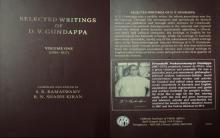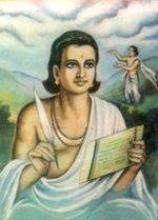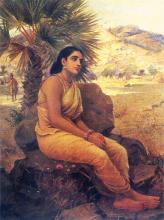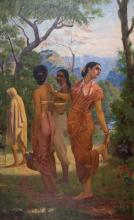An important segment in the present volume is a set of articles that narrates and analyses the political-reform movement led by Jayaprakash Narayan. In these essays DVG has pinpointed the job cut out for the political reformer:
Author:shashikiran
From the discussion carried out so far, I hope the reader does not come to the conclusion that Kālidāsa is conservative or is always other-worldly in his thoughts; he lays emphasis on family life, especially in children, as evident from his literary works; he always professes dharma to be practised at all levels; one must do it with dedication and through the proper process; all such activities are dependent on the availability of resources, especially on money; if we are dedicated and follow the right set of procedures, resources will naturally follow (7.29).
Unlike in the epic, Duṣyanta in the play, does not seek to marry Śakuntalā in a hurry. Kālidāsa introduces Śakuntalā to Duṣyanta little by little; the poet has displayed great amount of finesse, decorum, and dignity in introducing his characters;[1] he has created an occasion for their acquaintance to gradually blossom into romantic love; having said this, we are not trying to say that the story slows down; in a short span of a few acts, Kālidāsa brings together a lot of information; many incidents take place in rapid succession.
राष्ट्रकूट साम्राज्य का हरा भरा विस्तार
कन्नड लोगों के हृदय में बसने वाला एक प्रसिद्ध नाम नृपतुंग का है। श्री विजय के साथ अपने प्रसिद्ध ग्रंथ ‘कविराजमार्ग’ की रचना करने के कारण अमोघवर्ष नृपतुंग की प्रसिद्धि अमर हो गई। यद्यपि वह क्षात्र प्रतिष्ठा संपन्न महान योद्धा था किंतु शांतिकाल में भी साम्राज्य को संतुलित प्रबंधन के साथ सम्हालने में वह सक्षम था।
ಭರತನು ಹೇಳುವ ಮೂವತ್ತಾರು ಲಕ್ಷಣಗಳನ್ನು ವಿವರಿಸುವಾಗ ಅಭಿನವಗುಪ್ತನು ಇವಕ್ಕೂ ಅರ್ಥಾಲಂಕಾರಗಳಿಗೂ ಇರುವ ಸಂಬAಧವನ್ನು ವಿಸ್ತರಿಸುತ್ತ ತೌತನ ಮತವನ್ನು ಹೀಗೆ ಸಂಗ್ರಹಿಸಿದ್ದಾನೆ:
Now, I entered the third room. It had a nice carpet laid out and two or three pillows to lean against. Three or four men with splendid nāmas on their forehead, dressed in exquisite dhotis were seated on the carpet, helping themselves to some tāmbūla, engaging in boisterous chit-chat. I said, “Pūjè…” One of them replied, “Got over. Didn’t it?” It got done, just now!” I walked back, feeling foolish.
The playwright has constructed the plot and stitched together incidents to align with the fundamental philosophy of the story and the nature of its characters. The story begins and ends in a tapovana. Only in the middle of the story, we come across a city, which, Kālidāsa calls sukha-saṅgī.
चालुक्य विक्रमादित्य का उत्कृष्ट शासन
कर्नाटक के प्रमुखतम सम्राटों में कल्याण चालुक्य राज सम्राट विक्रमादित्य षष्टम का नाम स्मरणीय है। वह सोमेश्वर प्रथम का पुत्र था। यह उसका सौभाग्य था कि विद्यापति बिल्हण जैसा कवि उसके दरबार में था जिसने उसकी उपलब्धियों को सदा के लिए अमर बना दिया।
Mālavikā is a princess who was born and brought up in a palace; she is well-versed in dance and music; she was always a part of the life of antaḥpura and looked forward towards it.
हमारी दुर्बलताएँ
मुख्य रूप से हमारी दुर्बलता के दो पक्ष रहे है :- प्रथम तो यह कि हमने अपने शत्रुओं को हमारे द्वार तक आने दिया तथा दूसरा यह कि हमने युद्ध के संबंध में विकसित रणनीतियों तथा शस्त्र विज्ञान की नवीनतम जानकारियों से स्वयं को अवगत नहीं रखा। इसी के साथ हमारे आपसी कलह ने इन दो कमजोरियों को हमारी पराजय का मुख्य कारण बनाया।









